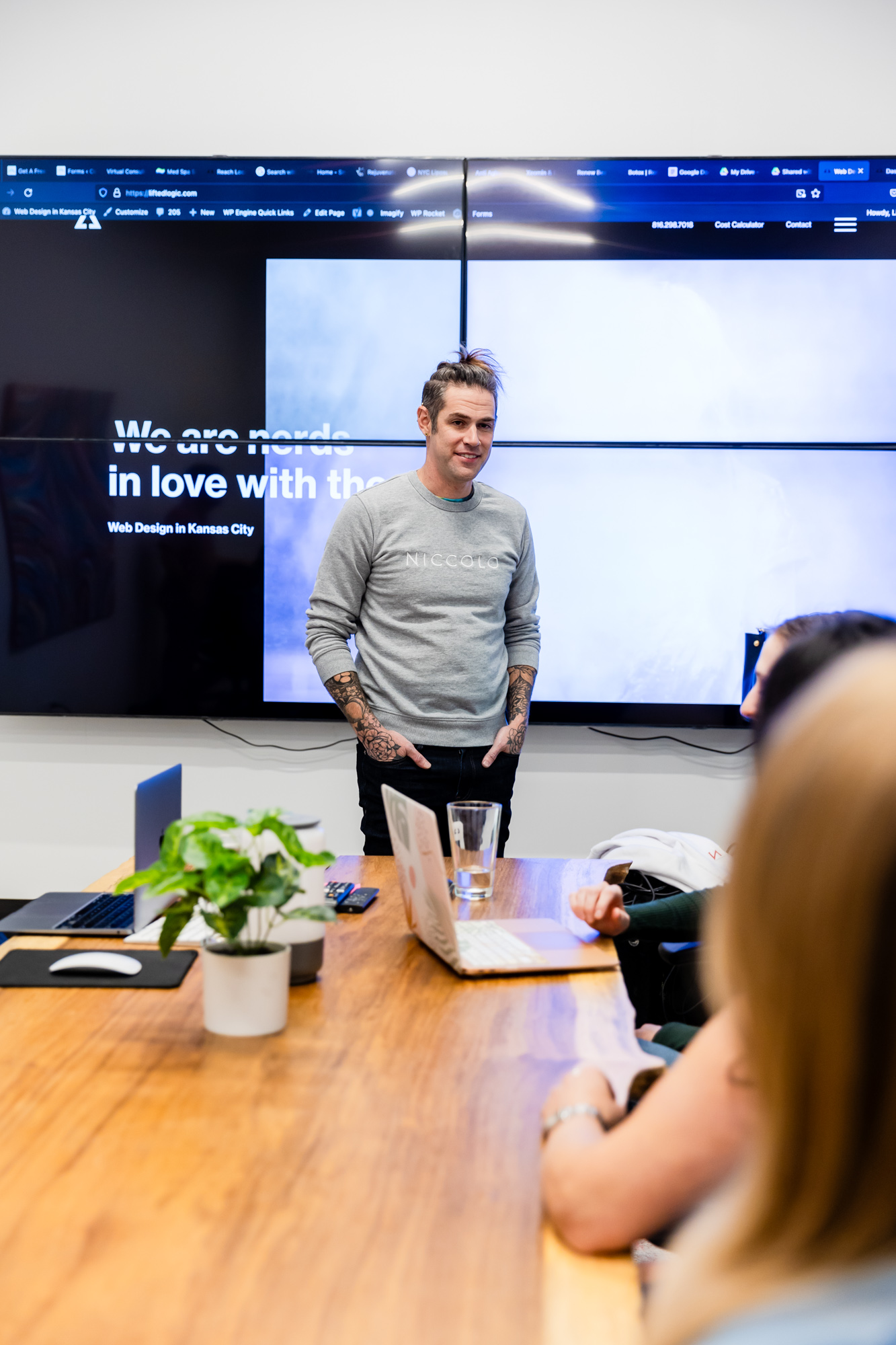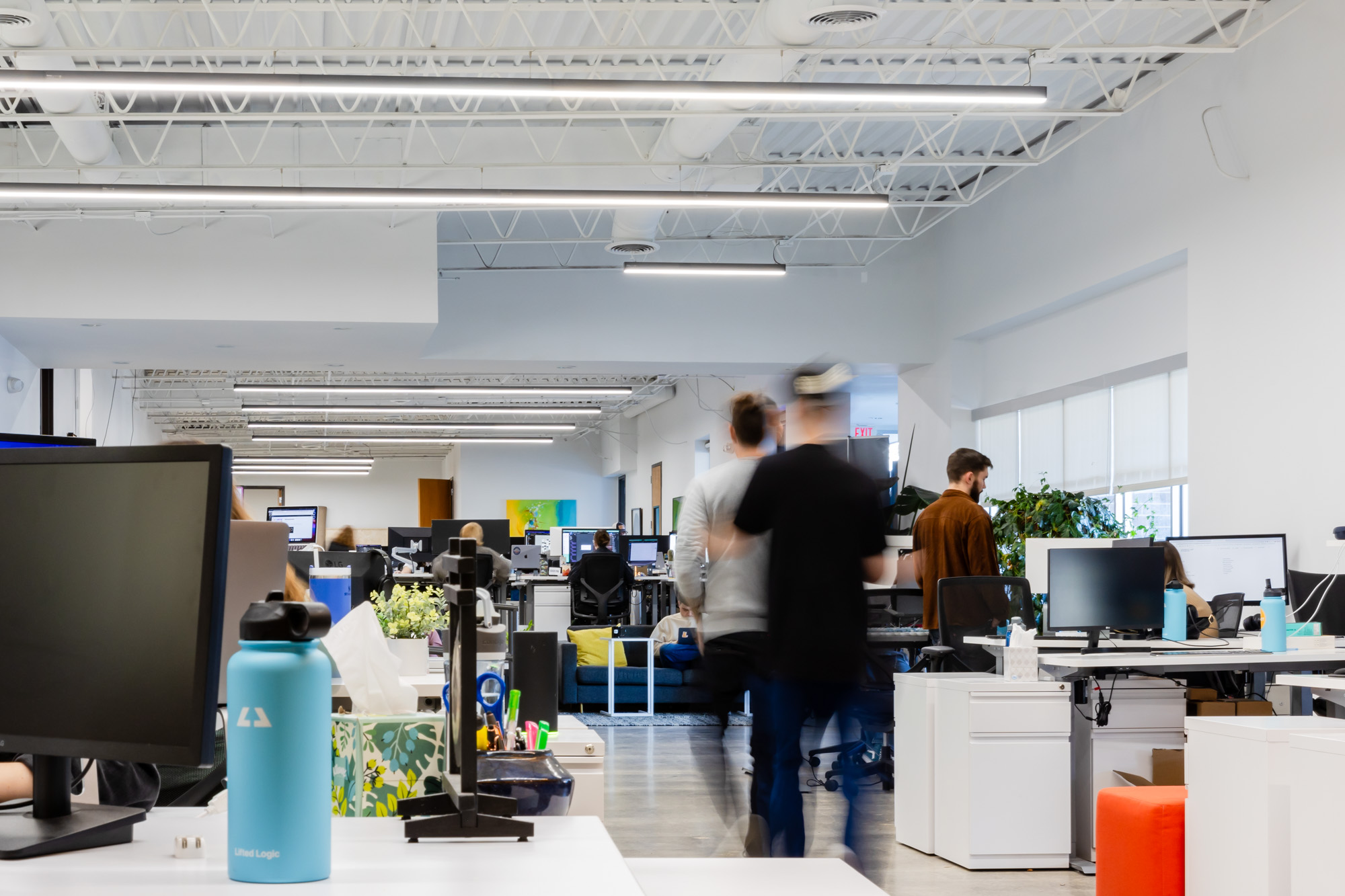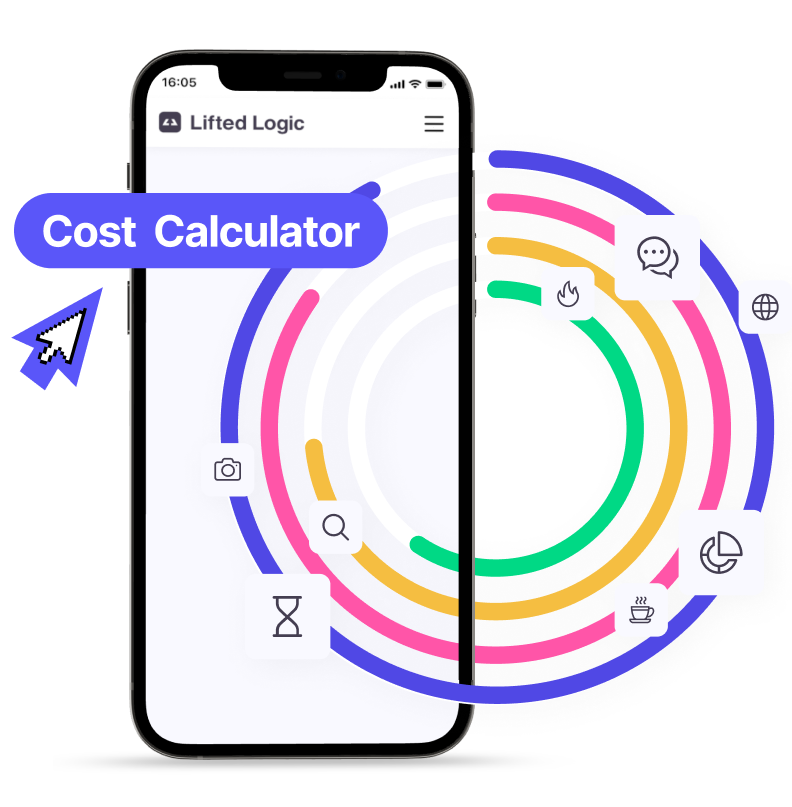How do I decide what pages will go on my website?
As you embark on the amazing journey that is the web design process, the first thing you should do after determining the scope of your project is to decide what pages will go on your new site.
But how do you know what content or messaging is worthy of its own page on your website?
Let’s walk through the thought process that the web design experts at Lifted Logic use to determine what content requires its own page on a website.
First things first
The first thing you should know about web pages is that the more pages and assets you have on your site, the slower the site may load for users.
However, the benefit of having a more robust website with lots of pages of content means that you’ll be capturing more search terms and helping your users find what they need (if it’s designed correctly, of course!).
Usually, there’s a balance to find. But how? Some call it an art. We call it content strategy.
1. Try to detach, as much as possible, from what you already know.
The reality is that your website should be for your users, not for you. Sometimes these two things are not mutually exclusive, and sometimes they are. Even if you are internally structured by departments, that may not fully translate to a website navigation in a logical way for a user that knows nothing about you and does not understand what you do.
For example, if you sell various types of windows, along with doors, roof products, and cabinets, and you internally structure your “window salespeople’s” responsibilities by brand or type of window; however, a new user unfamiliar with windows may not understand the difference and will need an explanation of the pros and cons of each window and brand.
Then, rather than having a page for each brand of window, you would want one “Window page” which explains the process of buying a window and display all of the brands you carry.
You should keep a completely open mind with what a user will and will not understand about your web content in order to most easily and effectively present the information they need and the opportunity to convert.
2. Ask yourself, will this subject be different from any other content on my site?
You don’t want your own pages competing against each other for top spots in search results. If you want a page to show up for the keyphrases “window product” and “window products”, chances are you only need one page.
Additionally, you should think about your content in terms of process. If you have a page for “Botox® in Kansas City” as well as a page for “Dysport® in Kansas City,” (two very similar, very popular cosmetic injections offered by med spas) but this content is exactly the same except for switching out the words “Botox” for “Dysport,” you may want to consider combining these pages into one “Botox and Dysport in Kansas City” page.
Conversely, if that same med spa has one “hair removal” page containing both waxing and laser hair removal, this may not be perfectly suited to the user. For one, laser hair removal is much more expensive than waxing. Two, the processes for how each of these hair removal methods work is vastly different—laser hair removal generally involves a consultation, multiple treatment sessions, and a recovery time; versus waxing which could simply be a walk-in appointment.
The logical thing to do with these two subjects, then, would be to split them into two pages. This will allow you to both capture and be more likely to rank for these separate keyphrases, as well as satisfy two different users’ intents for searching those phrases, without bothering them with topics they aren’t looking for.
3. Do keyphrase research (or pay someone to do it for you).
Are people searching for window company in Lenexa? Or do people in Lenexa search for window company in Kansas City? It is crucial to understand your demographic and the local culture to get inside the minds of your users and their behavior online.
Keyphrase research can help inform your decisions on which pages should be on your site, and which are not “worthy” of the real estate.
Ensure you are not over-optimizing. This goes back to the idea of having a page for “window product” versus “window products” — not only is this confusing for users, but it’s confusing for search engines, too. If someone searches for this term and both pages show up in results, you’re effectively competing against yourself in the SERP and therefore wasting your valuable energy and load time on duplicate content.
4. Determine whether you actually have content for that page.
If someone searches “laser hair removal,” they are statistically less likely to stay on your site if your laser hair removal page does not have any information that answers their questions.
Do you have, or plan on accounting for at least 300 words of content on the subject? If not, you may want to consider adding this content to a similar page.
For example, if you are a med spa and offer a free skincare consultation to every new client, but the only information you have about this process looks something like,
“We offer a free skincare consultation to every new client where we review your current lifestyle and skincare routine and analyze your skin using the Visia Analysis system…”
Then this probably doesn’t constitute needing its own page on your website. Yes, this is a service you offer, but this service is included in every client experience regardless of the treatments they’re opting for. Instead, you should place this sentence within every treatment page, as well as your homepage and about page on your site.
Conversely, if you have too much content (say, over 3,000 words) this content or subject might be better suited to an informative blog post, which is a format that most users expect to do a bit more “heavy lifting” on content digestion.
5. Understand that the average web user only visits an average of 1.3 pages per browsing session.
Including information about a specific facet of your business on only one or two pages on your site may not communicate that information to every single visitor.
This may seem contrary to our earlier suggestion that you keep each page of content unique in subject. However, if there is universal information that could benefit any user at any time, you may want to consider including a short blurb about it on multiple pages.
Assume that a user could land on any page on your site—not just the homepage. What would that user find? Ensure that every single page on your site will account for telling the user:
- Who you are
- What you do
- How you can satisfy their query (what they typed into Google to find you)
- And how to reach you
This may seem repetitive, but in actuality, web users are quick to skim over repeated information if they’ve seen it on another page (as long as it also looks visually similar to what they’ve seen before). This strategy will allow you to cover your bases so that every single user has an optimal experience, no matter which pages they see.
Learn more about content strategy with Lifted Logic
Our expert content strategists can help walk you through this process and determine exactly what pages you’ll need for your website. We have over a decade of experience in SEO and copywriting and can help you make informed decisions that will help your business’s online presence grow and flourish.
Contact us today for a free website review, or just to have a cup of coffee and talk strategy. It’s what we love!





